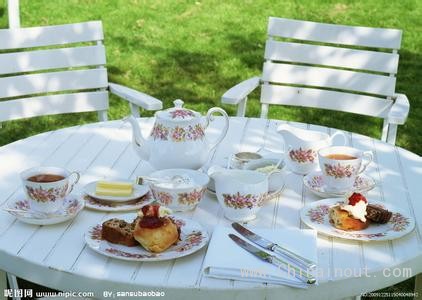指自己時要指鼻頭
如果你要說:"我這個人……",而要指自己的話,你的手指頭應指著鼻子,而不可指到別的地方去。這和中國人的習慣大致相同。
招手叫人時要把手掌心向著自己
要招呼距稍遠之人,不是要大聲喊一下,就是招招手示意,而東方人一向的習慣是手掌向人擺動招手,這在歐美各國看來是不禮貌的。在美國或歐洲,如果擺出東方人慣有的招手手勢,會被誤以為是"再見"。如果手勢再稍微變化一下,就含有嘲笑的意味。
東方人的許多手勢與歐美人不盡相同,故也易于引起誤會,要招手叫人時,應該手掌向上,并且向著自己的一邊,輕輕地變屈食指和中指,不必拼命做很多次,只要讓對方看到就行。各國常有不同的動作,表示不同的意義,所以到國外時不得不注意。
有牙簽也不可用
通常歐洲式的餐桌上都不準備牙簽的。即使餐桌上有牙簽,也不可在餐桌上使用。如果說你有使用牙簽的習慣,那么最好到洗手間去解決,否則當著飯桌上的客人,張開口來剔牙,實在有礙觀瞻,而且也不禮貌。
然而牙簽的用處,確有其功效,有個中國人去赴晚宴,餐后很想用牙簽,但不好意思也不便當著眾人面前使用,逐飛也似地鉆進洗手間,從口袋中拿出牙簽來,而他的一位外國朋友剛好也在那里,看見他的牙簽,便說,"原來你有這種好東西!"說著就把他的牙簽搶走了。可見并不是大家不喜歡用牙簽,而是為了禮貌,避免在席上用罷了!
弄臟了桌子時的禮貌
餐桌上禮儀的最高原則是"如同王侯貴族般地行動"。所以,任何都不要自己去做,即使膝蓋上的餐巾落地下,也要讓服務生撿起,并且盡量不要讓別的客人知道才算是禮貌。無論主人或別的客人,遇到這種情形時,也都要視若無睹。
但是,到普通家庭赴宴時,有時沒有服務生,就要自己動手去收拾,如果不小心碰倒了桌上的飲料,就先暫時把餐巾鋪在弄濕的地方上,把它吸干凈,在女主人站起來幫你手之前,適當地處理好。(中國進出口網整理翻譯)

To point yourself to point your nose
If you say, "I am ......", meanwhile point yourself, you’d better point the nose, and this is a habit as same as Chinese people’s.
When waving, put palm toward yourself
To greet a person far away from you, do not shout, just beckon, and Asians have the habit of swinging palms waving to people, which is impolite for part of the United States and Europe. In the United States or Europe, if you put Asians’ usual waving gesture, it would be mistaken for “Goodbye”.If the gesture change a little bit, it meant ridicule.
Many gestures of Asians are different from Europeans’, so it is easy to cause misunderstanding. When waving, you should put palm upward and toward yourself and then gently bend the index and middle finger change, do not do a lot of times, as long as let the other see. Different states often have different actions which have different meanings, so pay attention to your action when abroad.
No toothpick
There is always no toothpick at tables in Europe. Even if there is, you can not use it at tables. If you have the habit of using a toothpick, then it is best to go to the toilet to use, otherwise it is rude to use a toothpick in front of the guests.
However, the toothpick have its own usage. A Chinese person once went to dinner. after meals, he would like to use a toothpick, but not liked to use it in front of the front of the crowd, so he got into the bathroom, and get out of pocket toothpicks. while one of his foreign friends was there seeing his toothpick, the foreign friend said, "You have this good stuff!" Then the foreign friend robbed his toothpick. Therefore, it is wrong that foreigners do not like toothpicks, they’re just in courtesy and avoid using them at tables!
courtesy when you dirty a table
Table manners’ highest principle is "act as a prince." So, do not do it yourself, even napkins flow on the floor, let the waiter pick up, and try not to let the other guests know. Whether the owner or other guests, in which case, it should turn a blind eye.
However, when you go to a average family dinner, there is no waiter, it is necessary to clean up by yourself. If you knock over the table drinks, you should put a napkin. You’d better finish it before the hostess stands up.
如果你要說:"我這個人……",而要指自己的話,你的手指頭應指著鼻子,而不可指到別的地方去。這和中國人的習慣大致相同。
招手叫人時要把手掌心向著自己
要招呼距稍遠之人,不是要大聲喊一下,就是招招手示意,而東方人一向的習慣是手掌向人擺動招手,這在歐美各國看來是不禮貌的。在美國或歐洲,如果擺出東方人慣有的招手手勢,會被誤以為是"再見"。如果手勢再稍微變化一下,就含有嘲笑的意味。
東方人的許多手勢與歐美人不盡相同,故也易于引起誤會,要招手叫人時,應該手掌向上,并且向著自己的一邊,輕輕地變屈食指和中指,不必拼命做很多次,只要讓對方看到就行。各國常有不同的動作,表示不同的意義,所以到國外時不得不注意。
有牙簽也不可用
通常歐洲式的餐桌上都不準備牙簽的。即使餐桌上有牙簽,也不可在餐桌上使用。如果說你有使用牙簽的習慣,那么最好到洗手間去解決,否則當著飯桌上的客人,張開口來剔牙,實在有礙觀瞻,而且也不禮貌。
然而牙簽的用處,確有其功效,有個中國人去赴晚宴,餐后很想用牙簽,但不好意思也不便當著眾人面前使用,逐飛也似地鉆進洗手間,從口袋中拿出牙簽來,而他的一位外國朋友剛好也在那里,看見他的牙簽,便說,"原來你有這種好東西!"說著就把他的牙簽搶走了。可見并不是大家不喜歡用牙簽,而是為了禮貌,避免在席上用罷了!
弄臟了桌子時的禮貌
餐桌上禮儀的最高原則是"如同王侯貴族般地行動"。所以,任何都不要自己去做,即使膝蓋上的餐巾落地下,也要讓服務生撿起,并且盡量不要讓別的客人知道才算是禮貌。無論主人或別的客人,遇到這種情形時,也都要視若無睹。
但是,到普通家庭赴宴時,有時沒有服務生,就要自己動手去收拾,如果不小心碰倒了桌上的飲料,就先暫時把餐巾鋪在弄濕的地方上,把它吸干凈,在女主人站起來幫你手之前,適當地處理好。(中國進出口網整理翻譯)

To point yourself to point your nose
If you say, "I am ......", meanwhile point yourself, you’d better point the nose, and this is a habit as same as Chinese people’s.
When waving, put palm toward yourself
To greet a person far away from you, do not shout, just beckon, and Asians have the habit of swinging palms waving to people, which is impolite for part of the United States and Europe. In the United States or Europe, if you put Asians’ usual waving gesture, it would be mistaken for “Goodbye”.If the gesture change a little bit, it meant ridicule.
Many gestures of Asians are different from Europeans’, so it is easy to cause misunderstanding. When waving, you should put palm upward and toward yourself and then gently bend the index and middle finger change, do not do a lot of times, as long as let the other see. Different states often have different actions which have different meanings, so pay attention to your action when abroad.
No toothpick
There is always no toothpick at tables in Europe. Even if there is, you can not use it at tables. If you have the habit of using a toothpick, then it is best to go to the toilet to use, otherwise it is rude to use a toothpick in front of the guests.
However, the toothpick have its own usage. A Chinese person once went to dinner. after meals, he would like to use a toothpick, but not liked to use it in front of the front of the crowd, so he got into the bathroom, and get out of pocket toothpicks. while one of his foreign friends was there seeing his toothpick, the foreign friend said, "You have this good stuff!" Then the foreign friend robbed his toothpick. Therefore, it is wrong that foreigners do not like toothpicks, they’re just in courtesy and avoid using them at tables!
courtesy when you dirty a table
Table manners’ highest principle is "act as a prince." So, do not do it yourself, even napkins flow on the floor, let the waiter pick up, and try not to let the other guests know. Whether the owner or other guests, in which case, it should turn a blind eye.
However, when you go to a average family dinner, there is no waiter, it is necessary to clean up by yourself. If you knock over the table drinks, you should put a napkin. You’d better finish it before the hostess stands up.











